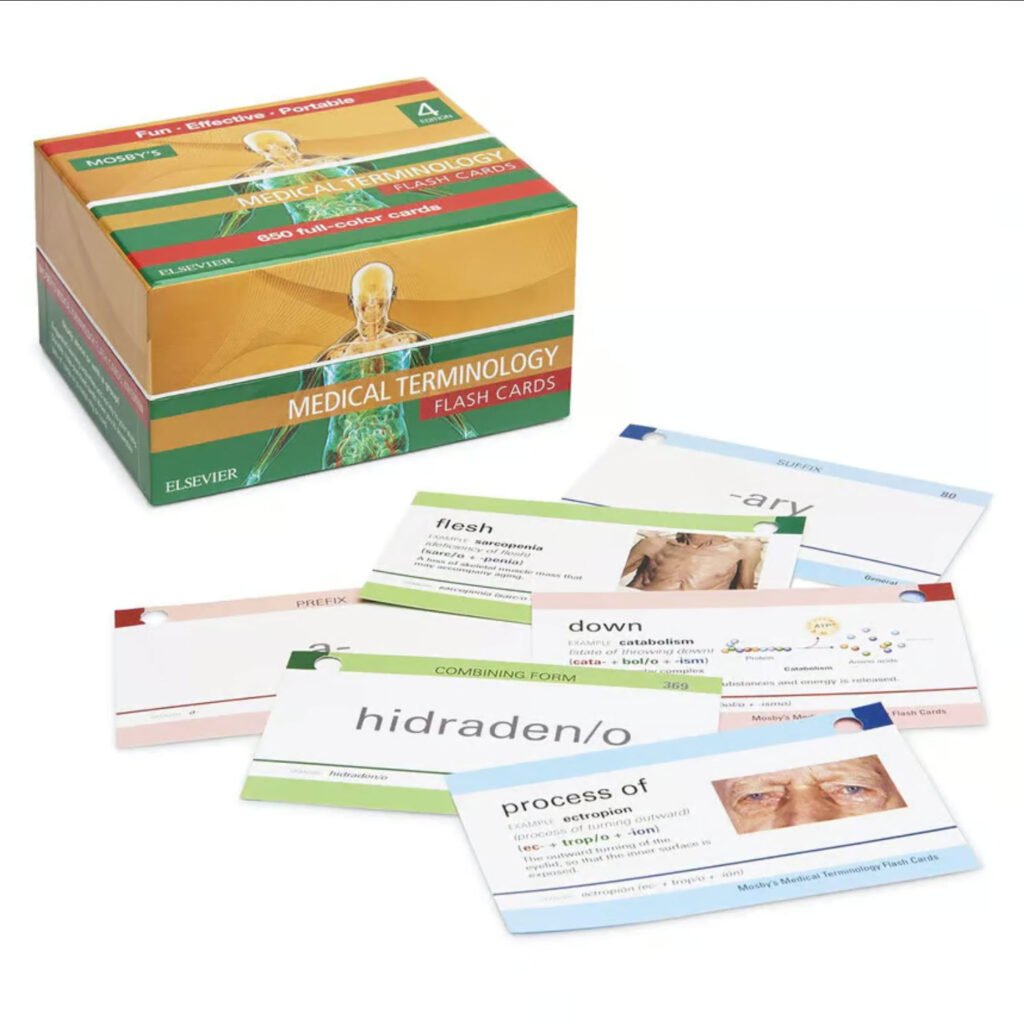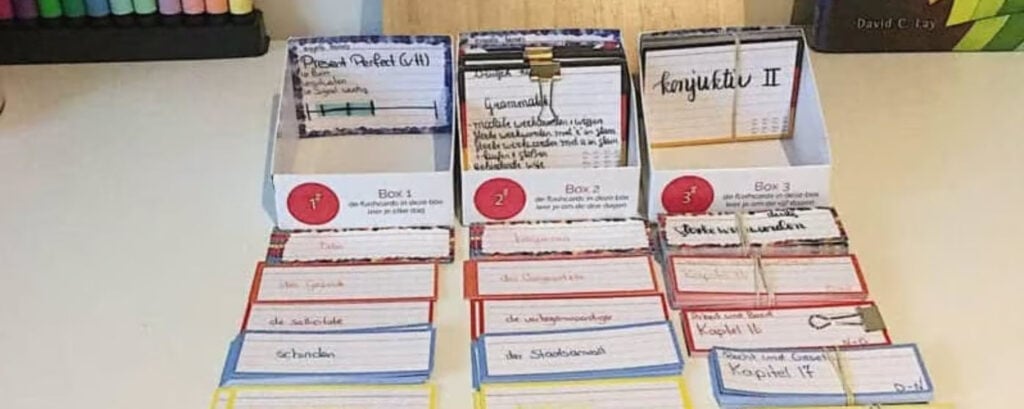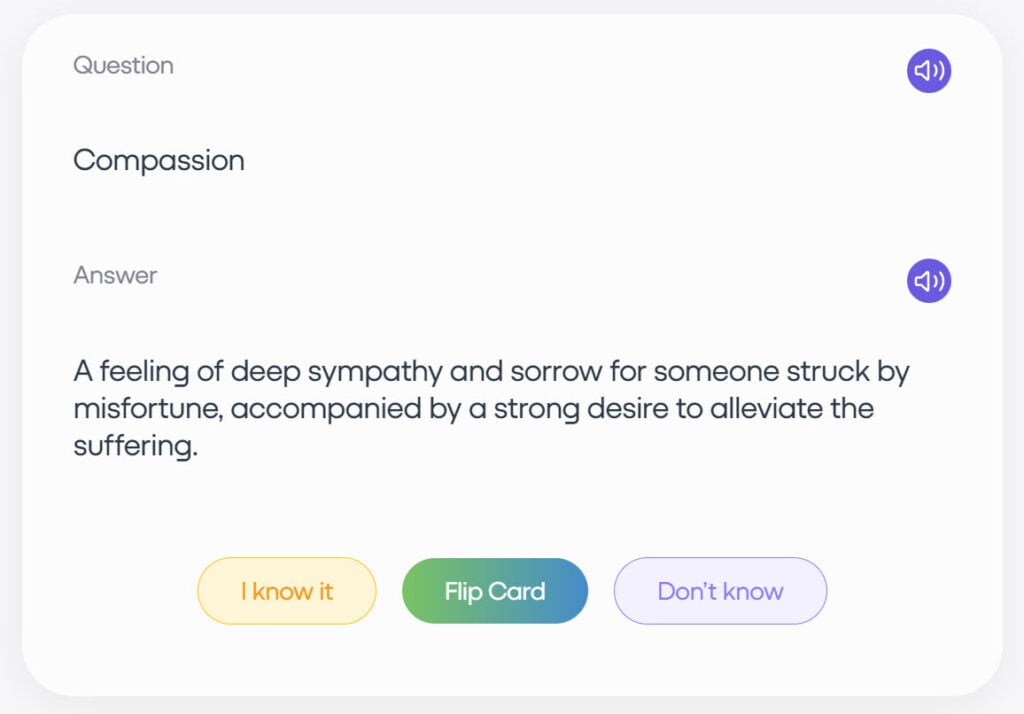Flash Cards: Are They Still Useful?

The venerable flash card is one of the oldest (if not the oldest!) learning and memorization methods. Its origins can be traced to at least centuries ago: Chinese scholars in the 15th century used cards called “Daxue Cards” for studying Confucian classics. From there on you can find repeated mention and usage of flash cards centuries ago in Europe and the rest of the world. The format and use of flash cards have changed over time, but the core concept of using a simple question-and-answer format for quick review and memorization remains consistent.
We’ve all grown up learning with flash cards as well. I think it’s time to answer the question: Are flash cards still useful? And if they are, who are they useful for, what subjects are they useful in, and how should we use them?
Wait, what are flash cards?
Before we get to talking much about flash cards, let’s get on the same page of what we are talking about:
Flash cards are a learning tool that consists of small cards or digital cards containing information on both sides. They are designed to help learners memorize and recall information by testing their knowledge through a question-and-answer format.
One side of the flash card usually presents a question, a term, or a concept, while the other side provides the answer or the corresponding definition or explanation. Flash cards can be used for various subjects and topics, such as language learning, vocabulary building, mathematics, history, or science.
Learners can create their own flash cards tailored to their individual needs and the specific material they are studying, or they can use pre-made sets sold commercially.

Modernity has touched flash cards, you can use physical cards, and there are electronic versions for computers and small screens as well.
Are flash cards still useful as a learning aid?
YES!… But not for every subject! (More on this in a bit.)
First, let’s see a list of the different ways in which flash cards can help you learn:
- Active recall: Flash cards encourage learners to actively retrieve information from their memory, which strengthens neural connections and makes it easier to recall the information later.
- Spaced repetition: Flash cards can be used in conjunction with a spaced repetition system, which involves reviewing material at increasing intervals of time. This has been shown to improve long-term retention of information.
- Metacognition: When using flash cards, learners can assess their understanding of the material, identify areas where they need improvement, and adjust their study strategies accordingly.
- Visual learning: Flash cards often include visual elements, such as images or diagrams, which can help learners who are more visually oriented to better understand and remember information.
- Portability and convenience: Physical flash cards are typically small, making them easy to carry and use for on-the-go learning or quick review sessions. Virtual flash cards are equally portable.
- Customization: Learners can create their own flash cards, allowing them to tailor the content to their individual needs, learning style, and the specific material they are studying.
- Versatility: Flash cards can be used for a wide range of subjects and topics, from language learning and vocabulary building to complex scientific concepts and historical events.
- Gamification: Flash cards can be used in a game-like format, with learners competing against themselves or others to see how many cards they can correctly answer in a set amount of time. This can make learning more engaging and enjoyable.
- Self-paced learning: Flash cards allow learners to work at their own pace, repeating difficult cards until they feel confident in their understanding of the material.
- Immediate feedback: Flash cards provide instant feedback on whether the answer was correct or incorrect, allowing for quick correction and reinforcement of the learning material.
Are flash cards for learners of all ages?
Yes, although we may have used flash cards in our younger years, this method of learning is useful for learners of all ages:
For younger children, flash cards can be used to teach basic concepts such as colors, shapes, numbers, letters, or simple vocabulary words. The cards can be designed with bright colors and engaging images to capture their attention and stimulate learning.
For older children and adolescents, flash cards can be used to learn more advanced concepts in various subjects, build vocabulary, or prepare for exams. They can also be used for language learning, memorizing formulas, or learning historical facts.
Adult learners can use flash cards for professional development, continuing education, or personal interests, such as learning a new language, studying for a certification exam, or acquiring new skills or knowledge in a particular area.
So yes, we can see that flash cards are equally effective learning aids for learners of any age.
For which learning goals do flash cards work best?
Flash cards can be an effective learning method for certain goals, especially those that involve memorization, quick recall, or incremental learning. Here’s a list:
- Vocabulary building: Flash cards are well-suited for learning new words, phrases, or idioms in your native language or a foreign language, as they can help with word association, pronunciation, and memorization of definitions.
- Specialized terminology: Flash cards can help learners in fields with specialized terminology (e.g., medical, biological, technical, etc.) to memorize terms, abbreviations, or symbols that are essential for their profession or studies.
- Language learning: Flash cards can be used to practice grammar rules, verb conjugations, or sentence structures in a foreign language.
- Memorizing formulas or equations: For subjects like math, physics, or chemistry, flash cards can help learners remember important formulas or equations that need to be quickly recalled for problem-solving.
- Learning key facts or concepts: Flash cards can be effective for studying subjects that require the memorization of specific facts or concepts, such as history (e.g., dates, events), geography (e.g. capitals, locations), or biology (e.g., terminology, classifications).
- Preparing for standardized tests: Flash cards can be useful for reviewing material and practicing recall in preparation for standardized tests or exams, where quick retrieval of facts, vocabulary, or concepts is crucial.
- Reinforcing learning: Flash cards can be used as a supplementary tool to reinforce learning from other sources, such as textbooks, lectures, or online courses, by providing a quick and focused way to review essential information.
- Incremental learning: Flash cards can help learners gradually build their knowledge base in a subject by consistently adding new cards and regularly reviewing older ones.
You can see that flash cards are useful for many learning purposes, it’s easy to see why they’ve been a learning tool for centuries now!
So, which learning goals are flash cards NOT well suited for?
Great question: Flash cards may not be the best learning method for goals or tasks that require a deeper understanding, critical thinking, or complex problem-solving skills. Since we’re making lists on this article, here is another list, this time of which learning goals flash cards are not the best option for:
- Developing critical thinking skills: Flash cards are primarily designed for memorization and quick recall, which may not foster the development of critical thinking, analytical, or evaluative skills necessary for a deeper understanding of complex subjects.
- Complex problem-solving: Flash cards are suited for learning tasks that require the application of knowledge to solve complex problems, such as those encountered in advanced mathematics, engineering, or programming.
- Understanding intricate relationships and connections: Flash cards tend to present information in an isolated manner, which may not help learners understand the relationships and connections between various concepts, ideas, or events.
- Building communication and collaboration skills: Since flash cards are typically a self-study tool, they may not be the best method for developing interpersonal communication, teamwork, or collaboration skills.
- Developing reading comprehension and writing skills: Flash cards focus on discrete pieces of information, which may not help learners develop essential reading comprehension and writing skills, such as understanding context, analyzing arguments, or constructing well-reasoned essays.
- Engaging in hands-on or experiential learning: Flash cards may not be the ideal method for learning tasks that require hands-on experience or real-world application, such as laboratory experiments, art, or vocational training.
- Learning to analyze and interpret complex texts: Flash cards may not be suitable for learning how to analyze, interpret, and critique complex texts, such as novels, research articles, or historical documents.
For these tasks, we need to use different learning tools and methods.
The one warning about flash cards
Because flash cards are well-suited to one subset of learning goals, it’s clear that flash cards are just one tool in your learning toolkit, albeit a very important tool.
You should use different learning methods as appropriate alongside flash cards.
Electronic versus digital flash cards
This chat about flash cards would not be complete without talking about physical versus electronic flash cards. In this day and age, parents (especially) are paying attention to screen time, so how do you choose between the two formats?
I could not find any research that declares one type of flash card the overall winner: It simply comes down to personal preference.
Here are some advantages and disadvantages of each:
Physical flash cards

Advantages
- Tangible and hands-on: Some learners prefer the tactile experience of handling physical cards, which can help with engagement and memory.
- Reduced screen time: Using physical flash cards reduces exposure to electronic screens, which can be beneficial for eye health and sleep patterns.
- Less prone to distractions: Physical flash cards limit the possibility of distractions from notifications, apps, or browsing.
Disadvantages
- Less portable: Physical flash cards can be bulkier and less convenient to carry around compared to a phone or computer.
- Environmental impact: Physical flash cards may contribute to paper waste unless they are reused or recycled.
- Manual organization: Learners must manually sort and organize physical flash cards, which can be time-consuming.
Digital flash cards

Advantages
- Portability and convenience: Digital flash cards are easily accessible on phones or computers, making them convenient for on-the-go learning and quick review sessions.
- Automated spaced repetition: Many digital flash card apps incorporate spaced repetition algorithms, which optimize review sessions for improved retention.
- Customization and multimedia: Digital flash cards can include multimedia elements such as images, audio, or videos, which can enhance the learning experience.
- Easy organization and updating: Digital flash cards can be quickly organized, updated, and shared with others.
Disadvantages
- Screen time: Using digital flash cards increases screen time, which can be a concern for some individuals.
- Distractions: Learning on a phone or computer can expose learners to potential distractions from notifications, apps, or browsing.
- Less tactile engagement: Digital flash cards may not provide the same tactile experience as physical cards, which can be important for some learners.
In Conclusion…
Well, that’s been a wild ride into what seems like a simple topic: Flash cards are still as useful a learning method as they were in the 15th century and flash cards are here to stay, and they have adapted will to the electronic format. We just need to use them for the right goals!